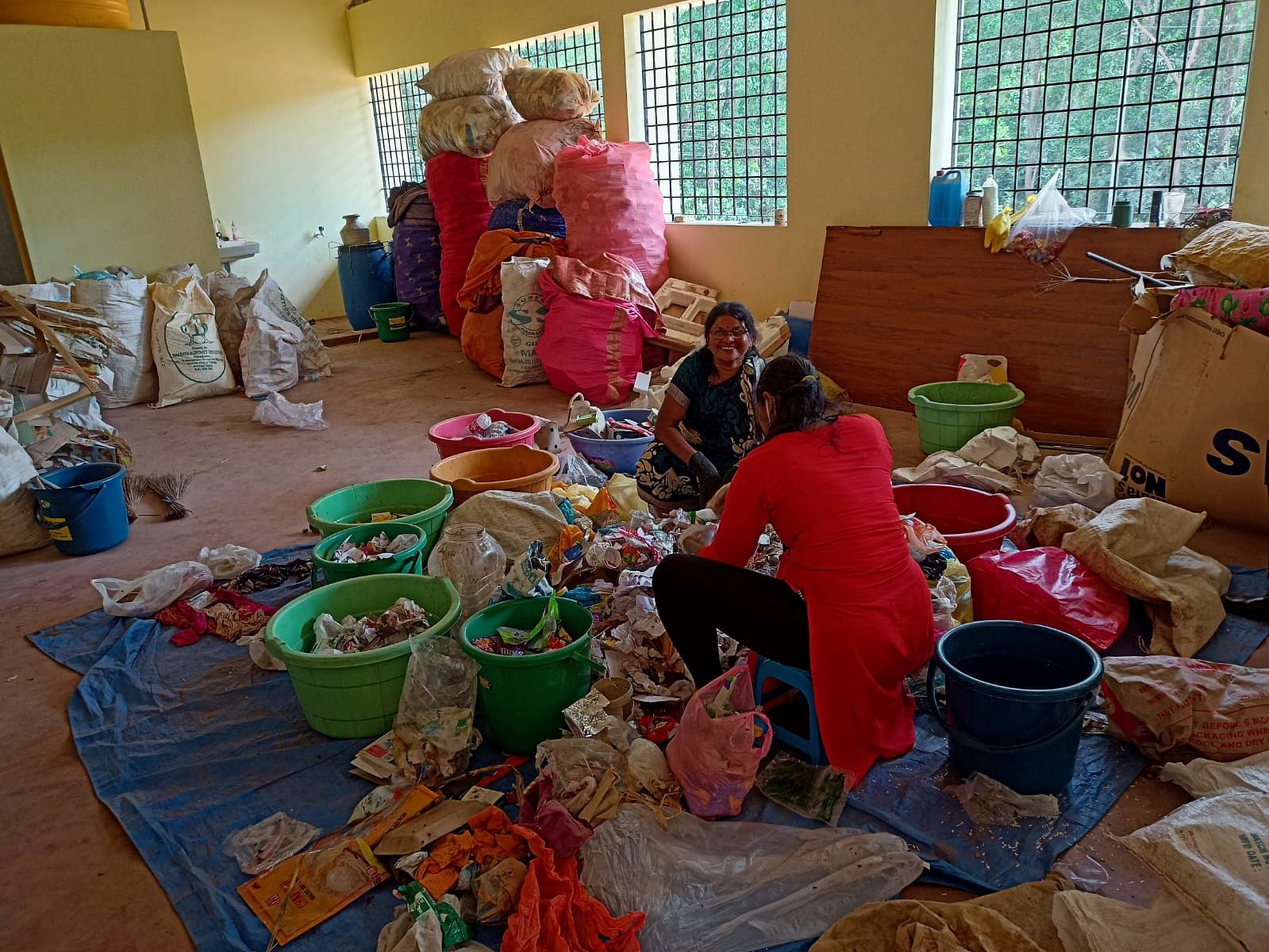
Kadeshwalya gram panchayat in Bantwal taluk has earned the distinction of having the first woman driver for its Swaccha Vahina engaged in the door-to-door collection of waste from households and establishments.
In addition, the gram panchayat has entered into an agreement with Mathru Sanjeevini Okkuta for scientific management of waste management units and has the credit of registering the Okkuta under the Karnataka Society Act, which is also the first in the district.
The gram panchayat has taken a step towards effective management of the garbage. There are 32 shops, units, hotels, 18 schools, Anganwadi centres, library, hall, health sub-centres and 1,048 buckets distributed for the collection of dry waste.
“As many as 376 families hand over solid waste once in three days, 128 families hand over waste once in a week and 352 families once in a month,” according to panchayat development officer Sunil Kumar.
“Under the leadership of Sanjeevini Okkuta President Shyamala, we are engaged in managing the collected garbage. We created awareness on segregating waste at the source and handing it over to the vehicle for one month prior to the commencement of our journey in waste management. About 90% of the people hand over the waste to the vehicle and the awareness is continuing,” said Lakshmi, the first woman driver of the Swaccha Vahini's vehicle.
Training in driving
Stating that it was her dream to drive a vehicle, she said “When the GP asked the Okkuta members to take over the waste management and drive the Swaccha Vahini vehicle, I went forward. Though I was not steady with driving, after nine days of driving class, I drove the vehicle. I am happy to be part of this initiative of keeping the surroundings clean.”
“Prameela joins me in the vehicle while Sumalatha segregates the dry waste collected at the Swaccha Sankeerna constructed on one-acre land at Korathiguri. We too join hands with Sumalatha after reaching the unit at noon in segregating the dry waste,” she said.
“On an average, 20 kg of wet waste and 30 to 35 kg of dry waste are collected daily. Steps have been taken to convert wet waste into manure in a bin constructed for the same. All the wet waste is dumped into the bin and converted to manure using cow dung water. It takes around six months for the wet waste to get converted into manure. The segregated dry waste at the unit was sold once and a revenue of Rs 9,450 was collected from selling it,” said the PDO.
The waste management is taken up effectively with community participation and with the efforts of the GP president and members.
Further, 36 soak pits have been constructed for the management of greywater from kitchens and bathrooms in houses. Steps have been taken to construct more pits in a phased manner to ensure that the greywater does not pose a problem of pollution.
Women drive 39 vehicles
Out of 223 gram panchayats in Dakshina Kannada, waste management has been entrusted to Sanjeevini Okkuta under NRLM in 66 Gram Panchayats in the district. Of the 66 Gram Panchayats, 39 Swaccha Vahini vehicles are driven by women.
Check out DH's latest videos: